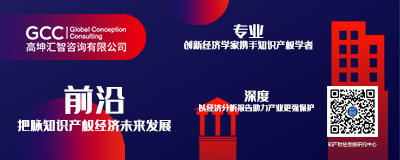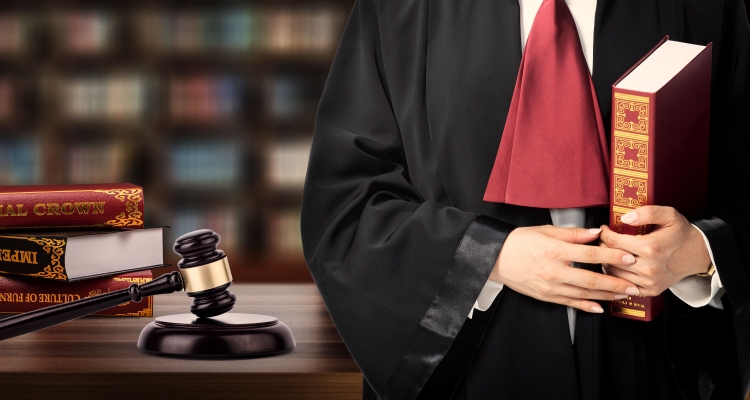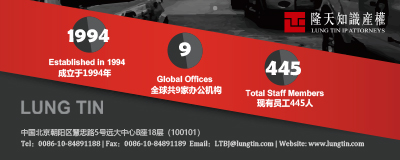2021年上海法院知识产权司法保护状况
2021年,上海法院充分发挥司法保护知识产权的职能作用,加强知识产权司法保护力度,深入推进公平竞争政策实施,不断健全完善审判机制,公正高效审理各类知识产权案件,为上海知识产权保护高地建设,打造法治化营商环境,确保经济持续健康发展提供优质高效的知识产权司法服务和保障。
一、知识产权审判总体情况
(一)案件总量持续攀升。2021年,上海法院共受理各类知识产权案件53,279件,审结49,100件,同比分别增长32.49%和30.88%,收案数大幅增长(图一)。
图一:2018-2021年上海法院各类知识产权案件收结情况对比图
受理一审知识产权案件52,110件,审结48,106件,同比分别增长32.39%和31.11%。其中,受理一审知识产权民事案件51,122件,审结47,035件,同比分别增长31.83%和29.92%(图二);受理一审知识产权刑事案件979件,审结1,064件,同比分别增长51.55%和93.10%;受理一审知识产权行政案件9件,同比增加6件,审结7件,与去年基本持平。一审商标权纠纷、专利权纠纷、不正当竞争纠纷案件数量大幅增长,著作权纠纷、特许经营合同纠纷增速趋缓(图三)。大标的额案件持续大幅增长(图四)。
图二:2018-2021年上海法院一审知识产权民事案件收结趋势图
图三:2021年上海法院一审知识产权民事案件收案类型图
图四:2020年与2021年上海法院受理的知识产权民事案件诉讼标的额情况对比图
(二)审判质效稳步向好。面对收案量不断增长的态势以及疫情防控形势下产生的新问题、新情况,上海法院攻坚克难,努力完成各项审判任务,审判质效保持良好。一审服判息诉率为96.93%;审限内结案率为99.59%,与去年基本持平。
(三)精品案例成果丰硕。知产法院一审、高院二审的上海茵能实业有限公司与宁海浙升塑料制品厂侵害发明专利权纠纷案入选2021年最高法院公报案例。三中院、杨浦法院审理的梁永平、王正航等十五人侵犯著作权罪案入选“2021年中国法院10大知识产权案件”,徐汇法院一审、知产法院二审的上海尔广餐饮管理有限公司与上海再高餐饮管理有限公司等仿冒、虚假宣传和商业诋毁纠纷案入选“2021年中国法院50件典型知识产权案例”。浦东法院审理的“陆金所金融服务平台”不正当竞争纠纷案入选“全国法院十大反垄断和反不正当竞争典型案例”。此外,上海法院还有2份知识产权裁判文书入选“第四届全国法院百篇优秀裁判文书”,1件知识产权案件入选“第四届全国法院百场优秀庭审”。在全国法院系统2021年度优秀案例分析评选活动中,上海法院报送的知识产权案例3篇获得二等奖,1篇获得三等奖,1篇获得优秀奖。
(四)有社会影响力的案件不断增多。上海法院审理的一批知识产权案件引发业界和社会关注。如金鑫与苹果公司等垄断纠纷案,涉及被告是否实施滥用市场支配地位的搭售和不公平高价的垄断行为的认定。特斯拉(上海)有限公司与中饮食品有限公司等侵害商标权及不正当竞争纠纷案,涉及“特斯拉”驰名商标的认定。中国银联股份有限公司与山东圣运信息技术有限公司侵害商标权纠纷案,涉及银联“闪付”“云闪付”驰名商标的认定。农夫山泉股份有限公司与忠县孟鸿农业有限公司等不正当竞争纠纷案,涉及“17.5°”具有一定影响知名商品名称的认定。上海灿星文化传媒股份有限公司与湖北视崛印象文化传媒有限公司不正当竞争纠纷案,涉及知名综艺节目《中国好声音》等。
(五)疑难、复杂、新类型案件引发关注。广州德立游艇码头工程有限公司与南充市园林管理处、中建三局集团有限公司等侵害外观设计专利权纠纷案,法院通过“专利默示许可”的认定,依法保护当事人的合理信赖利益。芬迪有限公司与上海益朗国际贸易有限公司、首创奥特莱斯(昆山)商业开发有限公司侵害商标权及不正当竞争纠纷案,厘清了商标合理使用的认定规则。苏州达家迎信息技术有限公司与上海择槽网络科技有限公司等侵害外观设计专利权纠纷案,北京金山安全软件有限公司与上海萌家网络科技有限公司以及与上海触宝信息技术有限公司、上海触乐信息技术有限公司侵害外观设计专利权纠纷案,涉及手机图形用户界面的外观设计专利侵权认定等新问题。
二、筑牢政治忠诚,扎实开展队伍教育整顿
(一)开展党史学习教育,提升政治修养。高院知产庭制定《知产庭党支部党史学习教育计划》,开展了走进“百年党史路奋斗新征程”巴士课堂、“忆院史、学党史、守初心”活动、“阅·知·行”党史书籍推荐分享会等党史学习教育活动,营造浓厚学习氛围,确保党史学习成效。知产法院知产一庭召开“学党史、悟思想、办实事、开新局”专题组织生活会,从政治学习中汲取工作动力。徐汇法院知产庭开展“沉浸式”党史学习教育主题党日活动,号召干警不忘初心、司法为民。
(二)开展队伍教育整顿,确保取得实效。高院知产庭召开队伍教育整顿征求意见座谈会,听取知识产权相关职能部门及中、基层法院的意见建议;认真落实党风廉政建设主体责任,开展警示教育,一体推进不敢腐、不能腐、不想腐;学习英模、弘扬正气,努力践行“一心为民、知恩图报”,做到“心中有信仰、脚下有力量”。浦东法院知产庭依托“三会一课”、主题党日等形式,集中开展习近平法治思想、党规党纪、英模教育等专题学习。杨浦法院知产庭把教育整顿和弘扬“四敢精神”相结合,抓教育整顿、促岗位建功,积极发挥党员先锋模范作用。普陀法院知产庭组织开展“六大顽瘴痼疾”和其它突出问题大起底、大整治,通过政策宣讲、自查自纠、线索核查、重点案件评查、智能化数据排查等举措深入查纠问题,全面推进“查改治建”。
(三)落实“我为群众办实事”,回应知产保护新需求。高院知产庭牵头落实上海法院“我为群众办实事”重点项目,“不断提升知识产权司法保护的效率和效果”;走访电商平台,积极回应产业需求;针对音乐作品集体管理中的痛点难点问题开展调研,研究完善相关裁判规则。知产法院知产二庭依法高效进行证据保全,在台风“烟花”登陆上海之际,坚持按原计划赶赴展会现场完成保全工作。徐汇法院知产庭联合人大代表、政协委员开展“满意在徐汇服务在基层”走访活动,就居民反映的营建文明城区以及疫情防控中遇到的问题进行沟通协调。
三、公正高效司法,知识产权保护成效显著
(一)依法适用惩罚性赔偿,加大损害赔偿力度。在丹尼斯克公司与岳阳瑞康生物科技股份有限公司等侵害发明专利权纠纷案中,作出上海法院首例专利侵权惩罚性赔偿,根据在案证据判赔1,100万元。在华谊兄弟传媒股份有限公司与平山区时代华谊影城等侵害商标权及不正当竞争纠纷案中,法院结合在案证据酌情确定涉案商标许可使用费30万元,并根据侵权行为和主观故意确定三倍惩罚性赔偿。在联合利华有限公司与王福龙、许书品侵害商标权纠纷案中,法院通过适用惩罚性赔偿全额支持原告诉请70万元。
(二)构建法治化营商环境,平等保护知识产权。上海法院平等保护中外当事人合法权益,严厉打击各类知识产权侵权行为。在西门子公司与小米通讯技术有限公司侵害发明专利权纠纷案中,法院通过适用“自上而下法”认定涉案标准必要专利的许可费率并在此基础上判赔1,200余万元。在卡西欧计算机株式会社与上海旋风贸易有限公司等侵害外观设计专利权系列纠纷案中,涉及知名商品“卡西欧手表”的外观设计,法院在依申请调取电商平台销售数据后三案共计判赔880万元。在娱乐壹英国有限公司与陈剑光、上海寻梦信息技术有限公司侵害商标权纠纷案中,依法认定“小猪佩奇”为驰名商标并判决赔偿原告经济损失,案件审结后收到英国驻沪总领事馆的感谢信,表示本案审理极大保护了外商投资企业在中国经营的合法权益。
(三)加大刑事打击力度,不断净化市场环境。上海法院加大对侵犯知识产权犯罪行为的惩治力度,审结了一批重大知识产权刑事案件。在涉香奈儿、古驰等奢侈品服装的假冒注册商标罪系列案件中,被告人犯罪金额达4,300余万元,法院对50名被告人判处有期徒刑五年九个月到一年三个月不等,罚金总额2,200余万元。在涉卡地亚珠宝的假冒注册商标罪系列案件中,被告人犯罪金额达6,100余万元,法院对21名被告人判处有期徒刑五年九个月到八个月不等,并处罚金。此外,上海法院还审结了“人人影视字幕组”侵犯著作权罪案、刘某洋非法制造“费列罗”注册商标标识罪案等一批社会关注度高、影响力大的知识产权刑事案件。
四、发挥司法职能,服务保障大局积极作为
(一)服务保障浦东高水平改革开放。高院、浦东法院积极参与《上海市浦东新区建立高水平知识产权保护制度若干规定》的论证工作,支持立法保障浦东高水平改革开放。高院在浦东法院召开知识产权司法服务保障引领区建设座谈会,进一步贯彻落实中央文件精神,支持浦东法院先行先试。在高院的指导下,浦东法院发布《上海市浦东新区人民法院打造知识产权司法保护引领区服务浦东新区高水平改革开放十项举措》,为引领区建设提供强有力的司法服务和保障。
(二)完善司法保障机制,为进博会、花博会保驾护航。高院知产庭协同普陀法院举办首届涉进博会知识产权保护论坛及系列调研活动、座谈会,主动听取并及时回应涉进博会(展会)知识产权保护需求。高院知产庭协同杨浦法院赴花博会指挥部深入调研,与指挥部和崇明区市场监督管理局的负责同志交流会商。杨浦法院制定《关于为第十届花博会提供知识产权司法服务保障意见》,提出14项具体举措;在花博会期间成立园区知识产权巡回审判点,对在花博园内专卖商品店销售“崇明大米”的地理标志证明商标侵权案,以网上跨域立案、现场就地办案的方式予以审理,花博会执委会发函致谢。
(三)开展司法宣传,优化法治化营商环境。在第21个“世界知识产权日”期间,高院和知产法院联合召开新闻发布会,发布中英文版《2020年上海法院知识产权司法保护白皮书》《上海知识产权法院知识产权司法保护状况(2020年)》和“2020年上海法院知识产权司法保护十大案件”“2020年上海法院加强知识产权保护力度典型案件”,并正式上线上海法院知识产权案件管理系统。知产法院召开不正当竞争案件审判情况新闻发布会,发布2015年至2020年不正当竞争案件审判情况白皮书和典型案例。浦东法院召开“涉外知识产权司法服务保障营商环境建设”新闻发布会,发布涉外知识产权司法服务保障营商环境建设白皮书,推出浦东法院关于全面加强涉外知识产权司法服务保障的十项举措并发布典型案例。杨浦法院发布涉著作权刑事案件审判白皮书和典型案例。徐汇法院走访电商企业上海寻梦信息技术有限公司,向其发出司法建议,从诉讼源头防范和化解纠纷,加强电商领域知识产权保护。
五、坚持开拓创新,知产审判机制不断优化
(一)完善“三合一”审判机制,加大协同保护力度。高院知产庭与市检察院第四检察部、市公安局食药环侦总队联合制定《关于知识产权民事、行政诉讼中刑事犯罪线索移送及同步审查的工作暂行办法》,发挥“三合一”审判机制职能作用,加强公检法之间的协作配合,形成知识产权民事、行政、刑事保护合力。杨浦法院、徐汇法院分别与区检察院、公安分局、市场监督管理局会签合作协议,加大刑事和行政协同保护力度,保证行政执法与刑事司法的无缝衔接,助推知识产权全面保护。杨浦法院与辖区公安局、检察院会签《关于规范移送涉嫌犯罪线索配合协作工作的意见》,建立联席会议制度,保障犯罪线索高效移送,形成打击知识产权刑事犯罪的合力。
(二)推进四级法院审级职能定位改革,提审具有指导意义的案件。高院知产庭依据《全国人民代表大会常务委员会关于授权最高人民法院组织开展四级法院审级职能定位改革试点工作的决定》以及《最高人民法院关于完善四级法院审级职能定位改革试点的实施办法》的相关规定,提审了钉钉科技公司等诉成都贺氏洪七公餐饮公司等侵害商标权及不正当竞争纠纷等三起具有普遍法律适用指导意义的案件,深入推进四级法院审级职能定位改革试点工作。
(三)推进繁简分流,完善速裁机制。杨浦法院大力推行“简案快审、繁案精审、类案专审”工作方法,成立速裁组专门办理电商平台和信息网络传播权案件;制定《杨浦法院知产庭小额诉讼程序要素式审判操作指引》,制作流程示意图、案件要素表、庭审提纲和表格式文书样式,为“简案快审、简出效率”提供指引。
(四)深化多元化纠纷解决机制,推进诉源治理。高院与世界知识产权组织仲裁与调解中心签署《加强知识产权领域替代性争议解决交流与合作谅解备忘录》,推动完善国际知识产权多元化纠纷解决机制。截至2021年底,共委托世界知识产权组织仲裁与调解上海中心调解涉外知识产权案件41件,成功调处14件。高院与市知识产权局联合发布《关于在本市开展知识产权纠纷行政调解协议司法确认程序试点工作的实施办法》《关于建立知识产权民事纠纷诉调对接工作机制的实施意见》,统筹全市知识产权专业调解力量,开展知识产权民事纠纷跨区域调解,进一步完善纠纷多元解决机制。普陀法院积极探索行政机关特邀调解机制,搭建跨区域知识产权调解平台。杨浦法院对一起地理标志证明商标案作出确认行政调解协议有效的民事裁定,系全市首例知识产权行政调解协议司法确认案件。
(五)积极探索全流程网上办案,推进纠纷在线化解。徐汇法院自2020年底启动全流程网上办案试点工作以来,积极探索知识产权类案要素式全流程网上办案机制,受理通过要素式立案方式提起的知产诉讼案件3,000余件;参与制定《电商平台知识产权案件全流程网上办案工作规则》等诉讼规则及《网上要素式立案诉讼指引》《“微法庭”使用指南(当事人版)》;与辖区知产案件较多的电商平台建立数据交互通道,实现涉案商铺及涉案商品数据与案件诉状材料的线上传输;探索非原告当事人电子送达新举措;积极构建诉讼新模式。浦东法院依托高院的“云间”庭审系统和第三方“小鱼易连”系统,不断深化互联网调判系统应用,相关做法受到最高法院院长周强的批示肯定:“浦东新区法院积极探索知识产权纠纷在线化解新模式,成效明显,值得总结推广”。
(六)优化知识产权专业事实查明机制。建立上海法院知识产权价值评估专家咨询制度,聘请“上海法院知识产权价值评估咨询专家”,召开“知识产权价值实现:司法政策与路径”研讨会,为损害赔偿数额的确定提供更为可靠的方法,推动损害赔偿与知识产权的市场价值相匹配。知产法院技术调查室积极探索外院案件委托机制,与审判部门开展座谈交流,服务全市知产审判技术事实查明需求。
六、积极开展调研,执法办案能力日益提升
(一)发布适法统一指导意见。高院制定发布《关于加强知识产权案件法律适用统一的工作办法》,构建、完善法律适用统一的问题发现、会商和应用机制,推动类案审判法律适用的统一。高院知产庭制定发布《关于卡拉OK经营者著作权侵权纠纷案件损害赔偿数额计算问题的解答》,合理确定卡拉OK经营者著作权侵权纠纷案件的损害赔偿数额,促进规范卡拉OK经营行业的版权使用秩序。
(二)精细化制定类案办案要件指南。高院知产庭牵头完成《著作权纠纷类案办案要件指南》,指导杨浦法院完成《特许经营合同纠纷类案办案要件指南》的编写工作,归纳总结共性问题和审理要点,有效引导类案的规范化审理。三中院刑庭组织撰写《侵害商标权犯罪类案办案要件指南》,及时总结侵害商标权犯罪的刑事审判经验。
(三)大力开展精品调研。高院知产庭进行司法智库课题《电商平台“二选一”的法律规制研究》调研,启动《知识产权案例精选》的编纂工作。在高院知产庭指导下,浦东法院联合知产财经全媒体主办“互联网不正当竞争原则条款适用实务论坛”,发布关于互联网专条兜底条款适用的调研报告以及互联网不正当竞争典型案例。高院知产庭、知产法院、浦东法院、徐汇法院参与撰写的《多项机制性问题制约反垄断工作推进》《部分平台不当获取数据开展不正当竞争个人信息保护待加强》,被《最高人民法院简报》刊发和中共中央办公厅转发。三中院刑庭参与编写《中国法院类案检索与裁判规则专项研究》丛书之《知识产权刑事案件裁判规则》一书,报送的3条裁判规则入选该书。浦东法院撰写《涉电商平台不正当竞争纠纷呈现新特点值得关注》,被最高法院办公厅评为2020年度全国法院优秀信息;开展最高法院司法统计分析重大课题《数字经济背景下我国文化创意产业知识产权司法保护研究》,并顺利结项。
(四)开展业务培训。开展条线菜单式培训,探索在线集中培训新模式,邀请最高法院资深法官、高校专家学者、产业界代表授课讲解。举办知识产权损害赔偿专题培训,邀请厦门大学经济学教授龙小宁进行主题为“知产诉讼中的经济分析:原理、方法与案例”的授课。
2022年是实施“十四五”规划的关键之年,也是党的二十大召开之年。上海法院将始终坚持以习近平新时代中国特色社会主义思想为指导,全面贯彻落实党的十九大和十九届历次全会精神及中央人大工作会议、中央政法工作会议精神,弘扬伟大建党精神,从党的百年奋斗重大成就和历史经验中汲取智慧和力量,认真落实知识产权强国建设纲要,加大电商平台、数字经济、文创产业等重点领域知识产权保护力度,不断加强科技创新成果保护,以更实举措维护市场公平竞争秩序,着力打造符合上海知识产权审判事业发展需要的专业队伍,不断优化法治化营商环境,为上海深化科创中心建设、加快建设具有世界影响力的社会主义现代化国际大都市提供更为优质高效的知识产权司法服务和保障。
英文版
Judicial Protection of Intellectual Property Rights by Shanghai Courts in 2021
In 2021, Shanghai courts fulfilled their functions of offering judicial protection of intellectual property rights (IPRs), strengthened judicial protection of IPRs, and further promoted the implementation of fair competition policies. By continuously improving the trial mechanisms, Shanghai courts heard various types of intellectual property (IP) cases in a fair and efficient manner in order to provide high-quality and efficient IP-related judicial services and guarantee for developing Shanghai into a highland in IPR protection, creating a law-based business environment, and sustaining healthy economic development.
I. General Situation of IP Case Trials
(1) The total number of IP cases continued to increase. In 2021, Shanghai courts accepted a total of 53,279 IP cases and concluded 49,100 cases, up 32.49% and 30.88% respectively from last year. The number of accepted cases saw a substantial growth (Figure 1).
Figure 1: Comparison of IP Cases Accepted and Concluded by Shanghai Courts in 2018-2021
A total of 52,110 cases accepted and 48,106 IP cases concluded were first-instance IP cases, representing a year-over-year growth of 32.39% and 31.11% respectively. Among them, 51,122 cases accepted and 47,035 cases concluded were civil IP cases, up 31.83% and 29.92% respectively from last year (Figure 2); 979 IP cases accepted and 1,064 IP cases concluded were criminal cases, up 51.55% and 93.10%; and 9 cases accepted were administrative IP cases, up 6 from last year, and 7 administrative IP cases were concluded, basically remaining unchanged compared to last year. The numbers of cases of first instance concerning trademark disputes, patent disputes and unfair competition disputes increased significantly, whilst the growth of the number of cases related to copyright disputes and franchise contracts slowed down (Figure 3). The number of cases involving large amount of claims continued to see a significant increase (Figure 4).
Figure 2: Trend Chart of Accepted and Concluded First-Instance Civil IP Cases of Shanghai Courts in 2018-2021
Figure 3: Types of First-Instance Civil IP Cases Accepted by Shanghai Courts in 2021
Figure 4: Comparison Chart of Amount of Claims of Civil IP Cases Accepted by Shanghai Courts in 2020 and 2021
(2) The trial effectiveness and efficiency improved steadily. Facing new issues and situations including the substantial increase in cases accepted and COVID-19 prevention and control, Shanghai courts managed to overcome difficulties, strived to complete various judicial tasks and achieved fairly good trial quality and efficiency. In 96.93% of first-instance cases, litigants were willing to accept the judgments rendered; the ratio of cases concluded within the time limit for case handling reached 99.59%, basically remaining unchanged compared to last year.
(3) Model cases achieved fruitful results. Shanghai Yinneng Industrial Co., Ltd. v. Ninghai Zhesheng Plastics Factory over invention patent infringement dispute, with Shanghai Intellectual Property Court as the court of first instance and the High People’s Court of Shanghai Municipality (Shanghai High People’s Court) as the court of second instance, was selected into the Gazette of the Supreme People’s Court in 2021. The case of copyright infringement crime filed against Liang Yongping, Wang Zhenghang and other 13 defendants, which was tried by the Third Intermediate People’s Court of Shanghai Municipality and Yangpu Primary People’s Court, was selected as one of “2021 Top 10 IP Cases of Chinese Courts”. The case of Shanghai Erguang Catering Management Co., Ltd. v. Shanghai Zaigao Catering Management Co., Ltd. over the counterfeiting, false advertising and commercial defamation dispute was selected as one of “2021 Top 50 Typical IP Cases of Chinese Courts”. “Lufax financial service platform” (case of an unfair competition dispute), heard by Pudong New Area Primary People’s Court, was selected into the “10 Model Anti-monopoly and Anti-unfair Competition Cases of the People’s Courts”. In addition, 2 judgments of IP cases released by Shanghai courts were selected for the 4th “Top 100 Judgments of Chinese Courts”, and 1 IP case was selected into the “Top 100 Hearings of Chinese Courts” within national courts. In the Selection of 2021 Excellent Case Analysis of Chinese courts, 3 IP cases analyses submitted by Shanghai courts won the second prizes, along with 1 third prize and 1 honorable mention.
(4) Cases with social influence kept increasing. A number of IP cases tried by Shanghai courts have attracted the attention from relevant sectors and the society. For example, Jin Xin v. Apple Inc et al. over monopoly dispute involved the determination of whether the defendant has abused its dominant market position to commit tying and charge unfairly high prices. Tesla (Shanghai) Co., Ltd. v. Zhongyin Food Co., Ltd. et al. over the trademark infringement and unfair competition dispute involved the determination of the well-known trademark “Tesla”. China UnionPay v. Shandong Shengyun Information Co., Ltd. over trademark infringement dispute involved the determination of well-known trademarks “QuickPass” and “Cloud QuickPass”. Nongfu Spring Co., Ltd. v. Zhongxian Menghong Agriculture Co., Ltd. et al. over unfair competition dispute involved the determination of the well-known product name “17.5 °” that has certain influence. Shanghai CanXing Culture & Media Co., Ltd. v. Hubei Shijue Yinxiang Culture & Media Co., Ltd. over unfair competition dispute involved the famous variety show “The Voice of China”, etc.
(5) Difficult and complicated cases and new types of cases caused concerns. In the case of Guangzhou Deli Yacht Marina Engineering Co., Ltd. v. Nanchong City Landscape Management Office and China Construction Third Engineering Bureau Co., Ltd. et al. over design patent infringement dispute, the court legally protected the reasonable reliance interest of the parties through the determination of “patent implied license”. In the case of Fendi Co., Ltd. v. Shanghai Yilang International Trade Co., Ltd. and Pioneer Capital Outlets (Kunshan) Commercial Development Co., Ltd. over trademark infringement and unfair competition dispute, the court clarified the identification rules for the reasonable use of the trademark. Three cases were involved in emerging issues like the determination of design patent infringement of mobile phone graphical user interface. These cases included: the case of Suzhou Dajiaying Information Technology Co., Ltd. v. Shanghai Zecao Network Technology Co., Ltd. over design patent infringement dispute; the case of Beijing Jinshan Security Software Co., Ltd. v. Shanghai Mengjia Network Technology Co., Ltd. over design patent infringement dispute; and the case of Beijing Jinshan Security Software Co., Ltd. v. Shanghai Chubao Information Technology Co., Ltd. and Shanghai Chule (Coo Tek) Information Technology Co., Ltd. over design patent infringement dispute.
II. Political loyalty consolidated through education and rectification within the team
(1) Party history learning and education activities were carried out to improve political integrity. The IP Division of Shanghai High People’s Court formulated the Party History Learning and Education Plan of the Party Branch of the IP Division and launched a number of such activities, including the Bus Classroom of “One-hundred-Year Party History, A New Journey of Endeavor”, the activity of “Recalling the History of the Court, Learning the Party History and Remaining True to Our Original Aspiration”, and “Reading · Knowing · Doing” Party history books recommending and sharing sessions, to create a sound atmosphere of learning and ensure the effectiveness of Party history learning. The First IP Division of Shanghai IP Court held a special organizational life meeting focusing on “Learning the Party history, Understanding its theories, Doing practical work and making new advances” to motivate their daily work. The IP Division of Xuhui Primary People’s Court carried out Party Day activities of “immersive” Party history learning and education, calling upon all of the judges, court staff, and judicial personnel to stay true to their original aspiration and to serve the people.
(2) Education and rectification within the team was carried out to ensure tangible results. The IP Division of Shanghai High People’s Court held an opinion-collecting session on team education and rectification, listened to and valued inputs of IP-related functional departments as well as the intermediate and primary courts; carefully implemented greater accountability for improving Party conduct, and carried out warning education on “not daring to, being unable to and having no desire to commit acts of corruption”. The IP Division of Shanghai High People’s Court also learnt from heroes and role models to carry forward uprightness, and strived to practice “Serving the People Heart and Soul and Being Grateful for the Kindness” to fulfill the motto that “Belief in Hearts, Strength in Acts”. The IP Division of Pudong New Area Primary People’s Court utilized the “Three Meetings and One Lesson” and thematic Party Day activities to carry out the study of Xi Jinping Thought on the Rule of Law, Party rules and disciplines, as well as campaigns of learning from heroes and role models. The IP Division of the Primary People’s Court of Yangpu District combined education and rectification with the promotion of the “Four Dares” (dare to innovate, dare to contend for first place, dare to tackle toughest challenges, and dare to take up the responsibility) guideline to encourage Party members to play an exemplary role in making achievements in their posts. The IP Division of Putuo Primary People’s Court organized various efforts to thoroughly expose and rectify deep-rooted problems in six major aspects and other prominent problems and took a series of measures including policy publicity, self-inspection and self-correction, clue verification, key case evaluation and intelligent data investigation to go deep into the problems and promote the work of “Investigation, Rectification, Improvement and Establishment” in an all-round way.
(3) The “I Do Practical Things for the People” series of activities were put into practice to respond to new demands for IP protection. The IP Division of Shanghai High People’s Court took the lead in implementing the key program of “I Do Practical Things for the People” among Shanghai courts, “Continuously improving the efficiency and effectiveness of judicial protection of IPRs”. The IP Division of Shanghai High People’s Court visited e-commerce platforms to actively respond to their demands; and carried out investigation on the pains and difficulties in the collective management of musical works to improve relevant judicial rules. The Second IP Division of Shanghai IP Court efficiently and legally conducted preservation of evidence, and completed the preservation work at the exhibition site according to the original plan despite the landing of severe Typhoon In-Fa in Shanghai. The IP Division of Xuhui Primary People’s Court joined hand with deputies of District People’s Congress and members of the District CPPCC Committee to launch the visiting event “Satisfaction in Xuhui, Serving in Local community”, communicated and coordinated with the residents about the problems encountered during the building of Civilized Districts as well as in the epidemic prevention and control.
III. Remarkable success in IPR protection enabled by fair and efficient judicature
(1) Punitive damages were applied in accordance with the law to increase compensation for damages. Danisco v. Yueyang Ruikang Biotechnology Co., Ltd. et al. over invention patent infringement dispute was the first case handled by Shanghai courts to apply punitive damages for patent infringement, in which the defendants were ruled to pay the damages of RMB 11 million based on evidences. In the case of Huayi Brothers Media Corporation v. Pingshan District Times Huayi Studios et al. over trademark infringement and unfair competition dispute, the court determined that the royalty of the trademark involved in the case was RMB 300,000 based on evidences, and thus determined three times punitive damages based on the infringement behavior and subjective intent. In the case of Unilever China Investment Co. Ltd. v. Wang Fulong, Xu Shupin et al. over trademark infringement dispute, the claim of the plaintiff for a compensation of RMB 700,000 was supported in full amount through the application of punitive damages.
(2) A law-based business environment was created to provide equal protection of IPRs. Shanghai courts provided equal protection of the legitimate rights for both domestic and overseas parties and cracked down on various IP infringement acts. In the case of Siemens AG v. Xiaomi Communications Co., Ltd. over invention patent dispute, the court identified the royalty of standard essential patents (SEPs) involved in the case through a “top-down approach” and the defendant was ruled to compensate over RMB 12 million. In the cases of Casio Computer Co., Ltd. v. Shanghai Xuanfeng Trade Co., Ltd. et al. over a series of disputes on design patent, which involved the industrial design of famous product “Casio Watches”, a total of RMB 8.8 million was awarded collectively in the three cases based on the sales data from relevant e-commerce platforms. In the case of Entertainment One UK Ltd. v. Chen Jianguang and Shanghai Xunmeng Information Technology Co., Ltd. over trademark infringement dispute, “Peppa Pig” was declared a well-known trademark by the court in accordance with the law and the defendants were ruled to compensate for the losses of the plaintiff. After the case was concluded, the court received a letter of thanks from the British Consulate-General Shanghai expressing that the trial of this case greatly protected the legitimate rights and interests of foreign-invested enterprises operating in China.
(3) Crackdown on crimes was intensified to continuously improve the market environment. Shanghai courts intensified punishment for IPR infringement and concluded a number of major criminal IP cases. In the series of cases involving crime of counterfeiting the registered trademarks of Chanel, Gucci and other luxury clothing, amount involved exceeded RMB 43 million, and the 50 defendants were sentenced to fixed-term imprisonment of different periods ranging from five years and nine months to one year and three months in addition to total fines of RMB 22 million. In the series of cases involving crime of counterfeiting the registered trademark of Cartier, the amount involved exceeded RMB 61 million, and the 21 defendants were sentenced to fixed-term imprisonment of different periods ranging from five years and nine months to eight months in addition to fines. Besides, Shanghai courts concluded a batch of criminal IP cases with high public concern and great influence, such as the copyright infringement case of YYeTs and the case of defendant Liu (X) yang illegally manufacturing the registered trademark of “Ferrero in Chinese”.
IV. Judicial functions fulfilled to serve the overall situation and empower active actions
(1) Services were provided to ensure high-level reform and opening-up of Pudong New Area. Shanghai High People’s Court and Pudong New Area Primary People’s Court actively participated in the argumentation of Several Regulations of Shanghai Pudong New Area on Establishing a High-Level Intellectual Property Protection System to provide legislative guarantee for Pudong’s high-level reform and opening-up. More specifically, Shanghai High People’s Court held a session in Pudong New Area Primary People’s Court on the building of a leading area for judicial services and guarantee of intellectual property rights, further implemented the guiding principles in documents released by the CPC Central Committee and the central government and supported Pudong New Area Primary People’s Court to play a leading and exploratory role. Under the guidance of Shanghai High People’s Court, Pudong New Area Primary People’s Court released the Ten Measures by Shanghai Pudong New Area Primary People’s Court for Building a Leading Area for Judicial Protection of Intellectual Property Rights and Serving the High-level Reform and Opening-up of Pudong New Area, thus providing strong judicial services and guarantee for the building of the leading area.
(2) The judicial guarantee mechanism was enhanced to provide judicial guarantee for China International Import Expo (CIIE) and China Flower Expo. The IP Division of Shanghai High People’s Court and Putuo Primary People’s Court held the First CIIE-related IP Protection Forum and a series of investigations and symposia to actively listen and respond to the demands for CIIE-related IP protection. The IP Division of Shanghai High People’s Court and Yangpu Primary People’s Court carried out in-depth investigation at the headquarters of China Flower Expo and held a meeting to exchange ideas with personnel in charge of the headquarters and Chongming District Administration for Market Regulation. Yangpu Primary People’s Court formulated the Guideline on Providing Intellectual Property Judicial Service Guarantee for the 10th China Flower Expo and put forward 14 concrete measures. The court also established an IP circuit trial station in the Garden during the Flower Expo, and adopted the way of online case filing and on-the-spot hearing to handle the geographical indication (GI) certification trademark infringement case of “Chongming Rice” sold in the exclusive shop in the Garden, after which it received a letter of thanks from the Executive Committee of the Flower Expo.
(3) Judicial publicity activities were carried out to improve the law-based business environment. During the 21st World Intellectual Property Day, Shanghai High People’s Court and Shanghai IP Court jointly held a press conference and issued several documents both in Chinese and English, including the White Paper of Intellectual Property Protection by Shanghai Courts in 2020 and Judicial Protection of Intellectual Property Rights by Shanghai Intellectual Property Court in 2020, as well as “Top Ten Cases on Judicial Protection of Intellectual Property Rights by Shanghai Courts in 2020” and “Typical cases on Strengthening Protection of Intellectual Property Rights by Shanghai Courts in 2020”, and officially launched the IP case management system of Shanghai courts. Shanghai IP Court held a press conference to issue a white paper on trial of cases involving unfair competition from 2015 to 2020 along with typical cases. Pudong New Area Primary People’s Court held a press conference to release a white paper on providing judicial services and guarantee for building a business environment favorable to foreign-related IP protection and ten measures to comprehensively strengthen judicial services and guarantee for foreign-related IP protection along with typical cases. Yangpu Primary People’s Court issued a white paper on trial of criminal copyright cases along with typical cases. Xuhui Primary People’s Court visited Shanghai Xunmeng Information Technology Co., Ltd., an e-commerce enterprise, to offer judicial suggestions to prevent and resolve disputes from the litigation source and strengthen IP protection in the e-commerce field.
V. Continuous innovation efforts made to further optimize IP trial mechanism
(1) The “Three-in-One” trial mechanism was improved to enhance coordinated protection. The IP Division of Shanghai High People’s Court joined hands with the Fourth Procuratorial Department of Shanghai People’s Procuratorate and the Food, Drug and Environment Crime Investigation Detachment (FDECID) of Shanghai Municipal Public Security Bureau to formulate the Interim Measures on the Transfer and synchronous Investigation of Criminal Clues in Civil and Administrative Proceedings of Intellectual Property Rights, giving full play to the functions of the “Three-in-One” trial mechanism and strengthening coordination among public security authorities, procuratorial authorities and people’s courts, thus forming a synergy of IP protection in civil, administrative and criminal proceedings. Yangpu Primary People’s Court and Xuhui Primary People’s Court respectively signed cooperation agreements with procuratorates, public security bureaus and administrations for market regulation of their own district to intensify coordinated IP protection in criminal and administrative proceedings, ensure seamless connection between administrative enforcement and criminal justice and facilitate all-round protection of IPRs. Yangpu Primary People’s Court signed the Opinions on Standardizing the Transfer of Suspected Criminal Clues and Cooperation Through Team Work with the district’s public security bureau and procuratorate and established a joint conference system to ensure efficient transfer of criminal clues and form a synergy to crack down on criminal IP offences.
(2) Efforts were made to push the reform of improving the trial levels and functional orientations of courts structured in a four-tier system and cases of guiding effect were upgraded of jurisdiction. According to relevant provisions in the Decision of the Standing Committee of the National People's Congress on Authorizing the Supreme People's Court to Organize and Conduct the Pilot Program of the Reform of the Trial Levels and Functional Orientations of Courts Structured in a Four-Tier System and Notice by the Supreme People's Court of Issuing the Implementation Measures for the Pilot Program of the Reform of Improving the Trial Levels and Functional Orientations of Courts Structured in a Four-Tier System, three cases with universal guiding effect on the application of law were removed to the IP Division of Shanghai High People’s Court, including DingTalk Technology Co., Ltd. et al. v. Chengdu Heshi Hongqigong Catering Management Co., Ltd. et al. over trademark infringement and unfair competition dispute, in a bid to advance the pilot program of reform.
(3) The mechanism of Split-flowing complicated cases and simplified ones was promoted to improve the fast-track sentencing mechanism. Yangpu Primary People’s Court vigorously promoted the working method of “Quick trial of Simple Cases, Sophisticated Trial of Complicated Cases, and Special Trial of Similar Cases”, and established a quick trial team dedicated for cases involving e-commerce platforms and the right of making available to the public. The court also formulated the Operational Guideline of the Intellectual Property Division of Yangpu Primary People’s Court for Factor-oriented Trial of Small Claims Procedures, and prepared the flow diagrams, case factors forms, trial outlines and documents in the form of sheets to provide guidance for efficient and quick trial of simple cases.
(4) The diversified dispute resolution mechanism was deepened to promote the governance of litigation source. Shanghai High People’s Court and WIPO Arbitration and Mediation Center signed the Memorandum of Understanding on Strengthening Exchanges and Cooperation on Alternative Dispute Resolution (ADR) in Intellectual Property Domain to promote the improvement of international diversified IP dispute resolution mechanisms. By the end of 2021, WIPO’s Shanghai Center for Arbitrati












 京公网安备 11010502049464号
京公网安备 11010502049464号